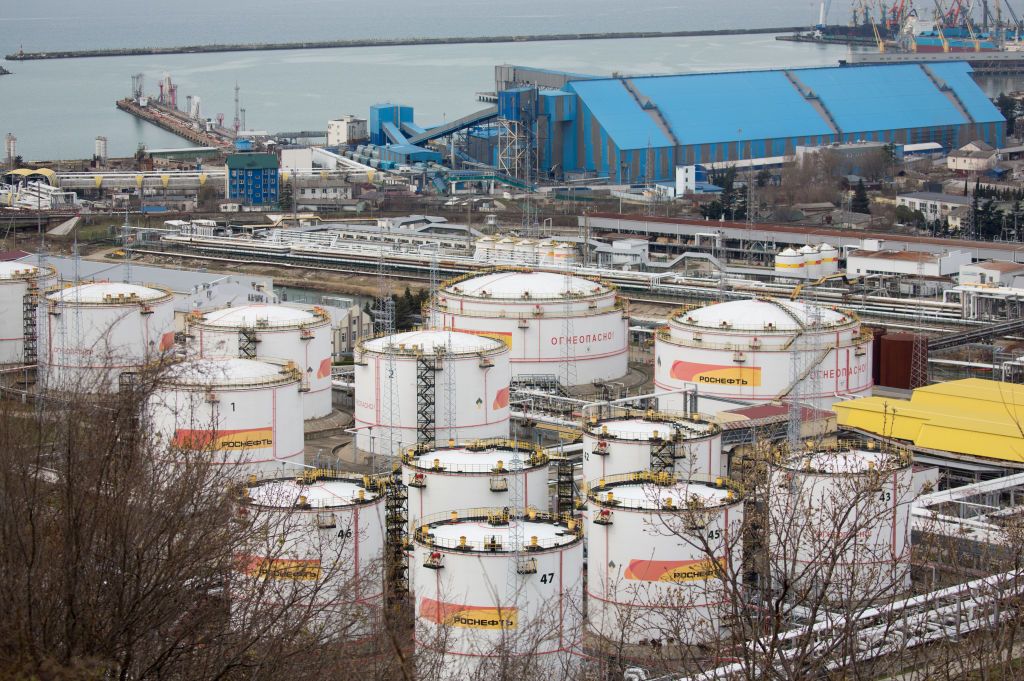UK, EU member states will step up inspections of Russian oil fleet, Bloomberg says

The U.K. plans to appeal to several European Union member states to act against the so-called "shadow fleet," Bloomberg reported on July 15, citing undisclosed sources and obtained documents.
An "unspecified number" of governments are expected to approve the plan on July 18, during a meeting of the European Political Community hosted by British Prime Minister Keir Starmer in the U.K., according to a draft statement.
The "shadow fleet" refers to aging and largely uninsured oil tankers that Russia uses to transport oil above the $60 per barrel price cap that the EU, the U.S., and the Group of Seven (G7) countries imposed in December 2022 as part of the effort to cut Moscow's fossil fuels revenue.
"Russia's 'shadow fleet' poses a threat to our nations and others who depend on the world's seas and oceans," the document said, which could still change before it is signed, according to Bloomberg.
"Many ships in this 'shadow fleet' are uninsured and poorly maintained. Many engage in activities which violate basic safety and environmental standards and regulations."
The participants aim to share information about the Russian fleet "to coordinate responses to the risks posed by its ships facilitators, and to work with the private sector and other maritime stakeholders to address the threat."
Officials and experts from different countries will form a group and meet to urgently "take concrete measures" to make it even harder for Russia to make money from its oil resources, the outlet said.
Sanctions may be imposed on more Russian ships of the "shadow fleet," Bloomberg said, citing a source who spoke on condition of anonymity.
"We urge ship owners and operators, the marine insurance industry, shipbrokers, and other relevant maritime stakeholders to adhere to their relevant obligations and support the prevention, detection, and reporting of 'shadow fleet' activities," the document read.
Aiming at one of Russia's main sources of money to fund its war, Ukraine has made a concerted effort to target the Russian oil industry with long-range drone strikes.
Bloomberg reported in March that the strikes have disrupted between 12-14% of Russia's oil refining capacity.
Strikes against Russian energy targets prompted criticism from U.S. officials in April. Washington said it does not support Ukraine's attacks on oil refineries, citing fears that it could threaten the global energy market.











